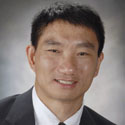
PeerJ Editor
100 Points
Contributions by role
Contributions by subject area
Shou-Jiang (SJ) Gao
PeerJ Editor
Summary
Dr. Gao is a Professor and Director of the Cancer Virology Program at the Hillman Cancer Center and in the Department of Microbiology and Molecular Genetics in the University of Pittsburgh School of Medicine.
Dr. Gao is an Elected Fellow of the American Academy of Microbiology. He currently serves as the Editor-In-Chief for the Journal of Medical Virology, Section Editor for PLoS Pathogens, and Academic Editor for PLoS One and PeerJ. He is also serving on the Editorial Boards of over 10 peer-reviewed journals including Journal of Virology, Journal of Antivirals & Antiretrovirals, Journal of Molecular Biomarkers and Diagnosis, Journal of Microbial & Biochemical Technology, Sarcoma Research International, Oncolytic Virotherapy, etc.
Editorial Board Member

PeerJ - the Journal of Life & Environmental Sciences
Past or current institution affiliations
Work details
Professor
University of Pittsburgh
Hillman Cancer Center
Dr. Gao’s laboratory is interested in the biology of infection and oncogenesis of tumor viruses. The current focus is on Kaposi’s sarcoma-associated herpesvirus (KSHV) and its associated cancers.
Viral infection is the cause of up to 15% of human cancers. As examples, human papilloma virus (HPV) infection is associated with cervical carcinoma while hepatitis C virus (HCV) or hepatitis B virus (HBV) infection is associated with hepatocellular carcinoma. KSHV infection is causally linked to the development of Kaposi’s sarcoma (KS), primary effusion lymphoma (PEL), and a subset of multicentric Castleman’s disease (MCD). KS is a highly inflammatory and vascularized spindle cell cancer of proliferative endothelial cells commonly found in AIDS patients. In some African regions, KS has become the most common cancer in patients with and without HIV infection. As an important emerging human pathogen, KSHV is an excellent model for studying inflammation, angiogenesis, oncogenesis, and virus-host and virus-virus interactions. The lab employs comprehensive genetic, genomic, molecular, cellular, and biochemical approaches to address these complex problems.